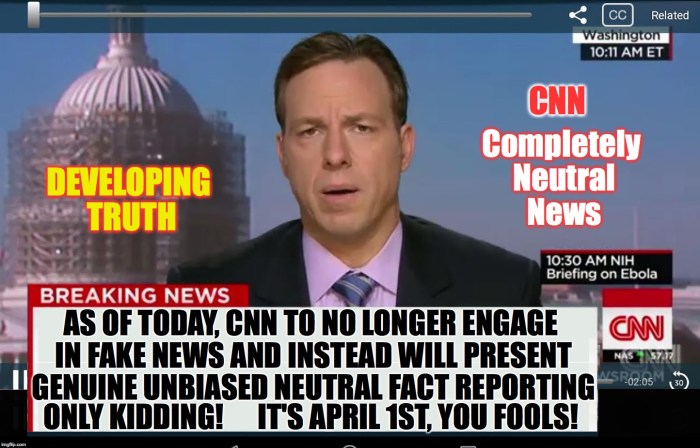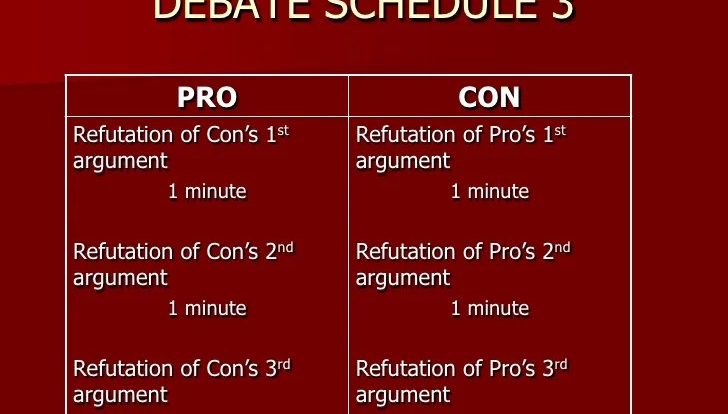Falsely present as genuine crossword – Falsely presented genuine crosswords are a growing problem within the crossword community, and it is important to be aware of the characteristics and red flags that can help solvers detect false or forged crosswords. This article will provide an overview of the issue, discuss the ethical implications of creating and distributing false crosswords, and offer guidance on how to report suspected crossword forgeries.
Crossword Structure and Design

Crossword puzzles typically consist of a grid of squares, with black squares indicating blocked spaces and white squares indicating spaces to be filled in. Solvers are provided with clues that lead them to fill in the white squares with words or phrases that intersect and fit together.Crosswords
can be categorized into various types, including:
Cryptic Crosswords
Cryptic crosswords are known for their challenging and indirect clues, which often require solvers to think laterally and use wordplay to decipher the intended answers.
Themed Crosswords
Themed crosswords center around a specific topic or theme, with clues and answers related to that theme.
Freeform Crosswords
Freeform crosswords offer more flexibility in grid design and clue structure, allowing for unique and creative puzzles.Well-designed crosswords effectively challenge solvers while providing a sense of satisfaction upon completion. They feature clear and concise clues, a balanced distribution of difficulty levels, and a logical grid structure that allows for multiple entry points and interconnected solutions.
Clues and Wordplay

Clues play a pivotal role in crossword puzzles, guiding solvers through the enigmatic grid of letters. They are crafted to provide hints and steer solvers towards the correct answers, often employing wordplay and clever misdirections.
Crossword clues come in various forms, each requiring a distinct approach from the solver. Definitions, the most straightforward type, provide a direct explanation of the answer. Anagrams, on the other hand, scramble the letters of the answer, requiring solvers to unscramble them.
Puns, known for their witty play on words, often hinge on homophones or double meanings.
Clever Wordplay
- In a cryptic crossword, the clue “Small change for a large bird?” could lead to the answer “EAGLE” (small change = EAGLE, large bird = EAGLE).
- A punning clue like “What do you call a fish with no eyes?” could reveal the answer “FSH” (fish with no eyes = FSH).
- An anagram clue such as “Rearrange ‘DIAPER’ to get something you wear” could lead to the answer “APRIDE” (DIAPER rearranged).
Clever wordplay adds an extra layer of challenge to crosswords, requiring solvers to think creatively and engage in lateral thinking.
Solving Techniques

Crossword solvers employ various strategies and techniques to decipher clues and complete the grid. These methods emphasize logical reasoning, pattern recognition, and vocabulary knowledge.
Logical Reasoning
- Examine the clue carefully, considering its structure and the relationship between the clue and the answer.
- Identify s that provide hints about the answer, such as synonyms, antonyms, homophones, or abbreviations.
- Use deductive reasoning to eliminate impossible answers and narrow down the possibilities.
Pattern Recognition
- Look for patterns in the grid, such as repeated letters or common prefixes or suffixes.
- Identify symmetries or mirror images in the grid that can provide clues about the placement of answers.
- Use the process of elimination to fill in letters based on the intersecting words.
Vocabulary Knowledge
- Possessing a strong vocabulary is crucial for understanding the nuances of clues.
- Use a dictionary or thesaurus to look up unfamiliar words or phrases.
- Consider the context of the clue and the overall theme of the crossword to infer the meaning of unfamiliar terms.
Tips for Improving Solving Skills, Falsely present as genuine crossword
- Practice regularly to develop pattern recognition and logical reasoning abilities.
- Study word lists and vocabulary builders to expand vocabulary knowledge.
- Collaborate with other solvers to share insights and techniques.
- Use online resources and tools, such as crossword solvers and dictionaries, to assist in solving.
Crossword Authenticity and Forgeries

In the realm of crosswords, authenticity is paramount. Ensuring the genuineness of puzzles is essential to maintain the integrity of the game and the credibility of constructors.
Measures to Ensure Authenticity
To guarantee authenticity, crossword editors and publishers implement stringent measures. These include:
- Rigorous Fact-Checking:Editors meticulously verify the accuracy of all clues and answers against authoritative sources.
- Thorough Screening:Puzzles are thoroughly examined for any potential errors, inconsistencies, or plagiarism.
- Reputation and Trust:Editors rely on the reputation of constructors and the trust built over time to ensure the authenticity of their work.
Motivations for Forgeries
Despite these safeguards, there are individuals who create and distribute false or forged crosswords. Their motivations vary widely:
- Reputation Building:Some individuals forge crosswords to gain recognition or establish themselves as skilled constructors.
- Hoaxes and Pranks:Forgeries can be created as hoaxes or pranks to deceive or amuse the crossword community.
- Financial Gain:In rare cases, forgeries may be created with the intent of selling them for profit.
Notable Forgeries and Hoaxes
Over the years, several notable crossword forgeries and hoaxes have emerged:
- The “Dr. X” Hoax:In 1988, a series of puzzles published under the pseudonym “Dr. X” were later revealed to be forged by a group of experienced constructors.
- The “David Letterman” Hoax:In 2010, a crossword puzzle was published in The New York Times that contained clues mocking the late-night host David Letterman. It was later discovered to be a forgery.
These incidents highlight the importance of maintaining vigilance against forgeries and hoaxes to protect the integrity of the crossword community.
Detecting False Crosswords: Falsely Present As Genuine Crossword

Detecting false or forged crosswords is essential for preserving the integrity of crossword solving. Solvers can identify suspicious crosswords by examining certain characteristics and red flags.
Characteristics of False Crosswords
- Inconsistent or inaccurate clues:Clues that do not match the grid or contain errors in spelling or grammar may indicate a false crossword.
- Unusual or obscure vocabulary:Crosswords that use excessively difficult or unfamiliar words may be an attempt to disguise a forgery.
- Lack of symmetry:Most crosswords have symmetrical grids, so an asymmetrical grid may be a sign of forgery.
- Unusual grid size or shape:Crosswords that deviate significantly from standard grid sizes or shapes may be suspicious.
- Errors in grid construction:Grids with missing or repeated numbers, incorrect black squares, or other construction errors may indicate a forgery.
Importance of Verification
To avoid falling prey to false crosswords, it is crucial to verify the source of the puzzle. Reputable crossword publications and websites have a history of accuracy and integrity.
Reporting Suspected Forgeries
If a solver suspects a crossword is false, they should report it to the publisher or website where it was found. This helps maintain the quality of crossword puzzles and prevents forgeries from circulating.
Ethical Considerations
The creation and distribution of false crosswords raise significant ethical concerns that warrant careful consideration. These practices have the potential to undermine the integrity of the crossword community and damage the reputation of the game.
Impact on the Crossword Community
False crosswords can mislead and frustrate crossword solvers, eroding their trust in the authenticity of puzzles. This can lead to a decline in participation and engagement within the crossword community. Additionally, the spread of false crosswords can create confusion and uncertainty, making it difficult for solvers to distinguish between genuine and fabricated puzzles.
Damage to the Reputation of the Game
False crosswords can tarnish the reputation of the game by associating it with deception and untrustworthiness. This can discourage new players from engaging with crosswords and damage the overall perception of the game as a legitimate and enjoyable pastime. The presence of false crosswords can also undermine the efforts of legitimate crossword creators, who may face skepticism and mistrust due to the actions of unethical individuals.
Guidelines for Ethical Crossword Creation and Distribution
To ensure the integrity and reputation of the crossword community, it is crucial to adhere to ethical guidelines when creating and distributing crosswords:
- Authenticity:Crosswords should be original creations and not misrepresented as the work of others.
- Transparency:Creators should clearly identify themselves and acknowledge any sources or collaborations used in the creation of the puzzle.
- Respect for Copyright:Crosswords should not infringe upon the intellectual property rights of others, including the use of copyrighted material without proper authorization.
- Quality Control:Creators should strive to produce high-quality puzzles that are fair, challenging, and enjoyable for solvers.
- Responsible Distribution:Crosswords should be distributed through reputable channels and with proper attribution to the creator.
Top FAQs
What are some of the characteristics of false crosswords?
False crosswords may contain errors in the grid, such as incorrect letter placements or missing squares. The clues may be vague or misleading, and the overall difficulty of the puzzle may be inconsistent.
What are the ethical implications of creating and distributing false crosswords?
Creating and distributing false crosswords can damage the reputation of the game and discourage new solvers from participating. It can also lead to confusion and frustration among solvers who are trying to complete the puzzle.
How can I report a suspected crossword forgery?
If you suspect that a crossword puzzle is false, you can report it to the publisher or to a crossword-solving community. You should provide as much information as possible, such as the name of the puzzle, the date it was published, and the reason why you believe it is false.
